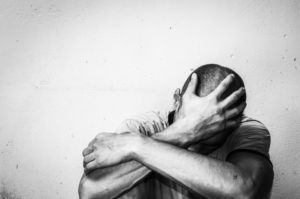Many drug abusers who successfully kick their addiction will often relapse because these changes can remain for months, even years of sobriety.
If you or someone you love is currently struggling to abstain from the use of drugs, it’s important to get the help needed as early as possible. The biggest hurdle to getting this help is the reluctance to recognize or admit there is a problem. Too many habitual users of drugs will claim they can stop whenever they wish or they may not consider their consumption to be an urgent matter that needs to be addressed. It’s only after the user realizes he or she is no longer able to function without taking drugs that addiction becomes deeply ingrained in the brain and it becomes more difficult to rehabilitate.
Understanding Addiction
Acknowledging that addiction is a disease of the brain is the first step toward understanding how addiction can affect many of the brain’s most important functions. Addiction will drive the user to change their behavioral patterns in order to feed their cravings, often to the detriment of other areas of their life and relationships with those closest to them.
The typical indicators of drug addiction might have a user showing a decreased ability to moderate their use of or refrain from ingesting a substance(s). A tolerance will often occur so the user will suffer physical and psychological impacts such as symptoms of withdrawal or increased use of the substance in order to get the same desired effect. This can lead to overdose. A user will also exhibit reckless behaviors, willing to put him or herself at risk to obtain or ingest the drug. Changes in personality and signs of weight loss may also be evident as the user neglects nourishment in favor of the drug.
The severity of these signs will often grow more severe as the addiction continues and the user will fail to see these signs as they grow more addicted to their drug or drugs of choice. The individual may not see what’s happening but others around him or her may start to recognize their addiction. An addicted person will always have an answer for why they are acting strange or displaying poor judgment. They will not see that a problem exists and it could take a serious incident to make them finally realize they are wrestling with an addiction. Unfortunately, that incident could have major legal or health ramifications, and that “wake-up call” might come too late.
Early Warning Signs
There are ways to determine if you or someone you love could be displaying early warning signs of drug addiction. The use of a drug once or twice might be considered nothing more than standard experimentation and could be just that – a one-time thing. But experimenting with drugs could become something much more serious and even life-threatening later on. This is true for those individuals who have a family history of addiction.
Early signs of addiction may also be found in certain behaviors of an individual who has a specific preference or affinity for one substance in particular. The individual may also be going out of his or her way to seek out activities or events where the user believes that particular substance is present.
These are just some of the most common indicators of a possible growing addiction to drugs and anyone exhibiting these signs may need to seek out drug treatment options.
Drug Addiction Treatment Options
You don’t need to go it alone. Substance addiction is best treated with reliable and ongoing support in the form of many possible treatment options. Addictions to certain drugs like heroin or benzodiazepines known as Xanax, Valium, or Klonopin may require medical detoxification to help the user safely navigate what could be a very intense withdrawal process. This detoxification phase is not intended to nor will it treat the addiction.
Additional treatments are necessary and there are multiple options from which to choose.
Inpatient Rehab
The best-known method for drug addiction treatment is residential rehabilitation. This means the individual is living inside of a residential facility as he or she participates in a comprehensive treatment program for recovering from addiction. There are many facilities out there, offering a wide range of treatment programs designed for targeting the individual’s specific needs for kicking the habit. This could require a program that extends over a course of weeks or a period of many months.
An inpatient residence offers round-the-clock support and medical facilities staffed by treatment professionals who are trained in working with users to overcome addiction in a safe and nurturing environment.
Support Groups
Narcotics Anonymous is one of the best-known support groups for users who want to get clean, but the organization is by no means the only one out there. There are a multitude of support programs, ranging from programs that utilize the popular “12 steps’ approach to sobriety to programs that rely on more scientific methods of group treatment.
The ability to interact with other individuals who are trying to overcome their issues with substance use has been shown to be an effective method for becoming sober. Be aware that not every program works for every individual so it’s important that you do your homework before entering any type of support or rehabilitation program.
Medication Treatment
The use of medication as part of a drug rehabilitation program has been shown as safe and effective for many types of drug addictions. One of the more common reasons why medications might be utilized in addiction recovery efforts is to minimize the potential for relapse. While there are many different types of medications available, they all work in a similar fashion – to reduce the need for a substance by eliminating the cravings. Some prescription medicines can have these effects while also helping to minimize the symptoms that might be felt from withdrawal.
Medication is not typically utilized as a singular option, but instead combined with other forms of treatment.
Therapy
An individual working through his or her addiction issues might also wish to see a therapist who can counsel them through their recovery. This is especially useful for those individuals who are dealing with psychological and/or emotional issues and turned to drugs as a way to cope with them. Therapy can help the individual pinpoint the root of the problem and find new and healthier ways to deal with these issues.
Finding the Right Drug Rehab For You
If you have decided to seek out treatment for an addiction to drugs or you are working with a loved one to get them the help they need, it’s very important that you conduct the proper due diligence on the treatment facilities and programs that you are considering for treatment.
The right drug rehab could mean different things to different people as recovery is a very personal journey. What worked for one person may not work for you or your loved one. Keeping that in mind, the following are some of the factors to consider when choosing the right rehabilitation program.
Personal Touch
There is no one treatment program for everyone. Each case of addiction is different, complex and layered with many factors to consider as to why an individual continues to show cravings for drugs. That’s why you want a drug rehabilitation program that caters to the individual, one case at a time. Tailor-made treatment will always be more successful than a program that eschews the personal approach in favor of one-size-fits-all recovery.
Defining Success
The measure of achievement must be clearly outlined to help the individual emerge from treatment with complete success. But the way a program defines success is critical. Discuss how benchmarks for progress are defined and the ways in which the individual can set and attain these goals. Gauging success on the road to recovery is just as important as the program itself.
Treatment Methods
The program you select for rehabilitation may offer many treatment methods and you must discuss which ones will be employed during your recovery. Those programs that rely on just one type of treatment method may not be as helpful as others that provide many options for drug addiction recovery.
Addressing Relapse
Many individuals believe that a relapse means they have failed at their recovery efforts. But while relapse is never the desired effect of treatment, it does happen and is not uncommon. However, the way your chosen treatment program addresses a relapse is an important component for deciding which one is best for you. Find out how the program works through relapse to get a better understanding of whether or not that program treats the issue with the dedication and sincerity it deserves.
Nationwide Resources
The following can be instrumental in providing you or a loved one with the help you need to break free of addiction to drugs and narcotics. Don’t delay your recovery, take that first step today to live a life without substance abuse.
Substance Abuse and Mental Health Services Administration (SAMHSA) Helpline
Call the toll-free number 1-800-662-HELP to get completely confidential information on useful resources for dealing with substance abuse issues. The line is available 24 hours a day, 365 days a year to provide the necessary assistance in finding local treatment facilities, community-based narcotics dependence organizations, and support groups dedicated to helping people get clean.
Addiction Technology Transfer Center (ATTC)
This organization works to improve, streamline, and monitor the quality of treatment programs by bringing together counselors, organizations, mental health workers, consumers, lawmakers, and various interested parties to allow them access to the up to date research and data on addiction and treatment breakthroughs. The ATTC believes this network of stakeholders can best develop and innovate the field of addiction counseling and recovery.
Narcotics Anonymous (NA)
As the name suggests, Narcotics Anonymous works in much the same way as Alcoholics Anonymous in that recovery from substance dependence is achieved through a twelve-step program that includes peer support and member meetings based on a spiritual outlook on treatment and recovery. While Narcotics Anonymous incorporates faith-based attitudes in its system for success, you do not need to believe in or promote any religious outlook in order to find success with the program. There is no cost to join and Narcotics Anonymous does not count any religions or government or medical organizations as affiliates.
National Association of State Alcohol and Drug Abuse Directors, Inc. (NASADAD)
Established in 1971, this national non-profit association catered to State Drug Agencies with a move toward expanding their affiliation to State Alcohol Use Disorder Agencies in 1978. Their goal is to conduct scientific research and education into the best methods for promoting the development of substance use prevention and recovery initiatives across the country.
Center for Substance Abuse Treatment (CSAT)
This organization works to support community-based addiction counseling and rehabilitation programs for local communities in which they are based. Their aim is to help users find the resources needed for gaining access to the right treatment and recovery services for living a drug-free life.
Faces and Voices of Recovery (FAVOR)
FAVOR is committed to coordinating the millions of individuals in the United States to help them kick their addictions to drugs and alcohol by incorporating families, friends, and loved ones in the recovery process. Nothing short of long-term sobriety will suffice when it comes to determining a measure of success for moving forward in your life without the need or desire for drugs.
National Institute of Drug Abuse (NIDA)
The NIDA is the primary federal research agency tasked with supporting and promoting the scientific causes and results associated with substance abuse and addiction. The group engages in education and research initiatives for the purposes of advancing the knowledge of how drug addiction works so they may apply that information for the greater good.
Centerstone
This non-profit healthcare provider focuses on providing treatment for substance addiction and mental health issues through inpatient facilities, outpatient care, educational efforts, and telehealth alternatives. The group specializes in in programs for the military, employee assistance programs and valuable data on substance abuse statistics and risk factors for the consumption of drugs
American Society of Addiction Medicine (ASAM)
With a nationwide database of over 6,000 medical professionals with experience in the field of addiction medicine, the ASAM supports research, outreach, education and prevention of substance abuse. Their goal is to further develop research on addiction and use that data to inform the general public along with psychologists and physicians on the causes and most effective treatment options for those with substance abuse issues.
Self-Management and Recovery Training (SMART)
A global non-profit organization whose primary goal is to resolve the challenges of addiction and give individuals and their families a new start. They do this through a variety of programs based on abstinence and mutual support. The focus here is on the larger picture surrounding addiction by pinpointing the reasons why someone begins using drugs. For many people, narcotics become a coping mechanism for dealing with emotional issues and other problems life throws in the way. SMART works with the individual to find other methods of coping with difficulty for a clean, healthy life.
National Treatment Network (NTN)
Created by NASADAD, the National Treatment Network is similar to other nationwide addiction resources on our list. The NTN compiles experts in the fields of Alcohol Use Disorder and substance abuse treatment at the state level to support and promote socially responsive outreach programs for the purpose of expanding access to publicly funded addiction recovery systems throughout the United States.
American Addiction Centers
Established in 2007, American Addiction Centers features a wide-ranging network of rehabilitation facilities throughout the United States, offering programs in California, Florida, Texas, Nevada, Mississippi, New Jersey, and Rhode Island. Their emphasis is on research-based treatments that target mental and behavioral health issues and drug and alcohol addictions with the help of a team of medical professionals from physicians and registered nurses to family therapists, marriage counselors, psychologists, and social workers. The Centers strive to provide a personal approach with staff members who are going through recovery of their own.
Online Sobriety Resources
Seems that we do just about everything online now, which opens up more access to addiction and recovery treatment for those who really need them. These resources help achieve sobriety and maintain it by offering a myriad of support services and treatment programs through databases and mobile apps. You can turn to these resources to find help or use them as a means for assistance in keeping you focused, on track, and encouraged to stay sober one day at a time. These online components are ideal solutions for reducing the potential for relapse and strengthen connections with other individuals working through recovery.
Pear reSET-O
Created by Pear Therapeutics for the treatment of substance addiction, the reSET-O offers a 12-week cognitive-behavioral recovery agenda that works with individuals who are currently part of an outpatient treatment process. Available only via prescription, the app offers features such as a medication treatment reminder, round-the-clock access to therapy, trigger and craving trackers, and coping strategies. The app has even been approved by the FDA for treating substance abuse issues.
I Am Sober
This is an app that emphasizes the “one day at a time” approach to recovery through a list of features designed to increase the potential for success in kicking an addiction. These include a sobriety tracker, daily and weekly progress views, milestone trackers, trigger and craving analysis, a journal for compiling your thoughts and notes on your recovery, and a visual gallery that you can personalize to remind yourself of the reasons why you have decided to face your addictions head-on.
SoberWorx
This app is designed for individuals who are seeking treatment and recovery programs in their region of the country. It offers an easy-to-navigate database of sober living homes, rehab facilities, counselors, and therapists who are ready to get you started on the road to sobriety. The app has been recognized by the NYU School of Medicine for its wealth of features and ease of use.
SoberTool
Another useful and highly effective mobile app aimed at treating addiction, the SoberTool app is designed to target the often difficult challenge of staving off cravings. Simply open the app and search for the craving you are resisting or the reason that triggered it. The app will then analyze the data you input and respond with ways you can manage and overcome the craving for any number of substances stored in the database. In addition, the SoberTool provides a community-based support forum to interact with other users on the app and a sobriety tracker to display how well your recovery has progressed.
Connections
This app offers a wealth of features for individuals working through substance abuse by providing round-the-clock support with counselors and other users of the app. Presented a joint effort between the Addiction Policy Forum and CHESS Health, Connections is all about just that – connecting you with other like-minded individuals who understand what you are going through because they are doing the same thing. The goal is to get people talking to one another about their recovery as a safe space for learning from one another’s experiences in a collective effort towards sobriety.
SoberGrid
Similar in scope and purpose to the Connections app, SoberGrid also places a greater emphasis on the importance of community. The interface works a lot like a typical dating app, where you can locate sober individuals who are looking to connect with other sober individuals in your area. You scroll through the app to view profiles of other members and you can then reach out to start a conversation. While the app is free to download, you can also pay a $99 fee to gain access to other features and direct counseling support with recovery coaches ready to guide you through any tough challenges that might have you turning back to destructive habits.
Start Your Recovery
One of the most complete online resources for helping individuals locate treatment and recovery facilities and providers from state to state. This ever-evolving database has been compiled and organized by an accredited collection of researchers and professionals in non-profit, academic, and government backgrounds representing a list of well-qualified organizations. Each listing in the Start Your Recovery database comes with the many certifications and recognition acknowledgments received from credible and respected healthcare regulation boards. The goal is to assure the public that these service providers are effective and trusted places for recovery.
Help.org
Another useful guide for working through your addiction issues. For many individuals, a major obstacle to getting into a recovery or treatment program is finding one. Whether it’s misinformation about rehab facilities or confusion about where to begin the process of deciding which one is best, these are significant barriers to success and they are doing untold levels of damage. That’s what Help.org aims to avoid, by offering individuals the information necessary for understanding how to go about finding the treatment option that works best for them. This is done by compiling the most up-to-date data and information about the current state of recovery and the options that exist.
DrugRehabUS.org
Another online database available to the public, DrugRehabUS.org works as a referral service that offers listings on recovery programs and facilities across the United States. The website is not intended as a medical treatment provider but instead provides you with the options that are currently available. They do not endorse or guarantee any results, the onus is on you to do your due diligence among likely candidates for your addiction treatment and choose the one that is best.
Partnership to End Addiction
This non-profit works to prevent addiction by targeting young people who may be in a place to start their experimentation with drugs. The use of social outreach and communication with parents, teachers, and teens provides the foundation for steering young adults towards a drug and alcohol-free lifestyle. Putting out the facts on addiction and how it begins while deglamorizng the appeal of hard drugs such as cocaine, marijuana, heroin, Ecstasy, and prescription pills are only part of the ongoing effort to keep kids away from these harmful influences. This organization is trying to educate and inform the public about the dangers of drug use at an early age and the damage it can do later on in life.










